Skill Up: Equipping Teenagers in Underserved Communities to Leverage Technology and Skill Acquisition for Economic Prosperity
Introduction
According to the United Nations, recent estimates suggest that 600 million jobs will need to be created over the next 15 years to meet youth employment needs. In response to this pressing challenge, Tech Herfrica has taken a significant step in collaboration with the Child of Christ Community to launch the Summer SkillUp Program. This initiative aims to equip teenagers aged 13–19 in underserved communities with the skills, knowledge, and mindset necessary to thrive in today’s fast-paced world. By bridging the gap between technology and entrepreneurship, we strive to unlock the full potential of Nigeria’s youth and equip them with the tools to succeed.
Program Launch
The launch of the Summer SkillUp Program took place at Mpape Community on July 6, 2024. Participating teenagers acquired newfound digital knowledge and gained practical knowledge to engage in income-generating activities. The program emphasized financial literacy, enabling participants to effectively manage their earnings. They learned from Gianna Osuobeni, the founder of the Child of Christ Community and a teenage entrepreneur herself, about how to embark on entrepreneurial journeys at a young age. Additionally, Ms. Lucy Abeng, the founder of the Mental Health for Youth Initiative (MHYI Nigeria), educated the teenagers on finding their identity and maintaining mental wellness. Four teenagers received sponsorships to learn income-generating skills in either barbing or hairdressing. They were provided with the necessary tools (clippers and braiding kits) to start the skill acquisition process, and they were also introduced to their trainers, with their training commencing as soon as their summer break began.
Needs Assessment Findings
The needs assessment was divided into two sections:
- Background and Well-Being: In this section, we discovered a range of circumstances and challenges faced by the participating teenagers:
- School Enrollment:
- One (5%) out of the 20 teenagers was not currently enrolled in school, while the remaining teenagers were in classes ranging from Junior Secondary School 1 (JSS1) to Senior Secondary School 3 (SS3).
- Parental Situation:
- Six (30%) teenagers mentioned that their fathers had passed away or were not living with them.
- The other 14 (70%) teenagers reported that their fathers were employed as blue-collar workers.
- Two (10%) teenagers reported that their mothers were without jobs or incomes.
- Six (30%) teenagers said their mothers were employed.
- One (5%) teenager said their mother was no longer alive.
- Eleven (55%) teenagers mentioned that their mothers were small-scale entrepreneurs.
- Nutrition and Daily Meals:
- Eight (40%) teenagers said they ate once or twice daily.
- The remaining teenagers reported eating three times a day.
- Home Life Satisfaction:
- Ten (50%) teenagers mentioned that they were satisfied with their home life.
- The others cited issues such as poverty, poor living conditions, and physical abuse as reasons for their dissatisfaction with their home life.
- Literacy and Knowledge
- This section assessed the teenagers’ literacy levels, skills, and their knowledge in digital and financial literacy.
- Skills and Income Generation:
- Thirteen (65%) teenagers claimed to have a skill, but only eight were currently earning an income. Their income-generating activities included:
- Working as customer support for a freelancing academy
- Assisting family members with their occupations
- Drawing
- Hairdressing
- Baking chin chin
- Selling water
- Access to Digital Devices:
- Only five (25%) teenagers had access to a smartphone, which they used for chatting with friends online, doing assignments, and, in one case, an online job.
- Four (20%) teenagers knew how to use digital devices to conduct research for their school work.
- Entrepreneurship and Mental Health Awareness:
- Eleven (55%) teenagers were familiar with the concept of entrepreneurship before the program.
- Thirteen (65%) teenagers did not know how to take care of their mental health before participating in the program.
- Ten (50%) teenagers were aware that people could earn money using their smartphones.
- Financial Literacy:
- Surprisingly, nineteen (95%) of the teenagers reported knowing how to manage their money properly.
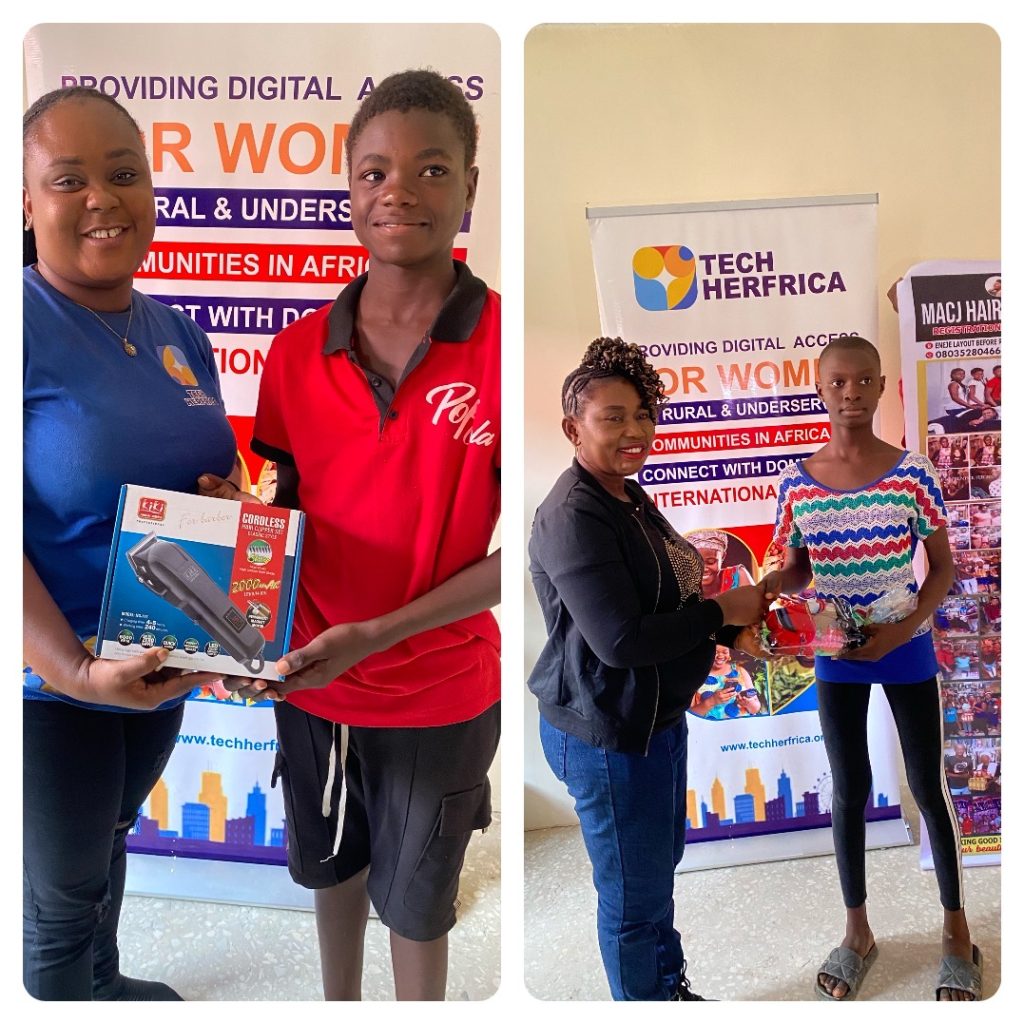
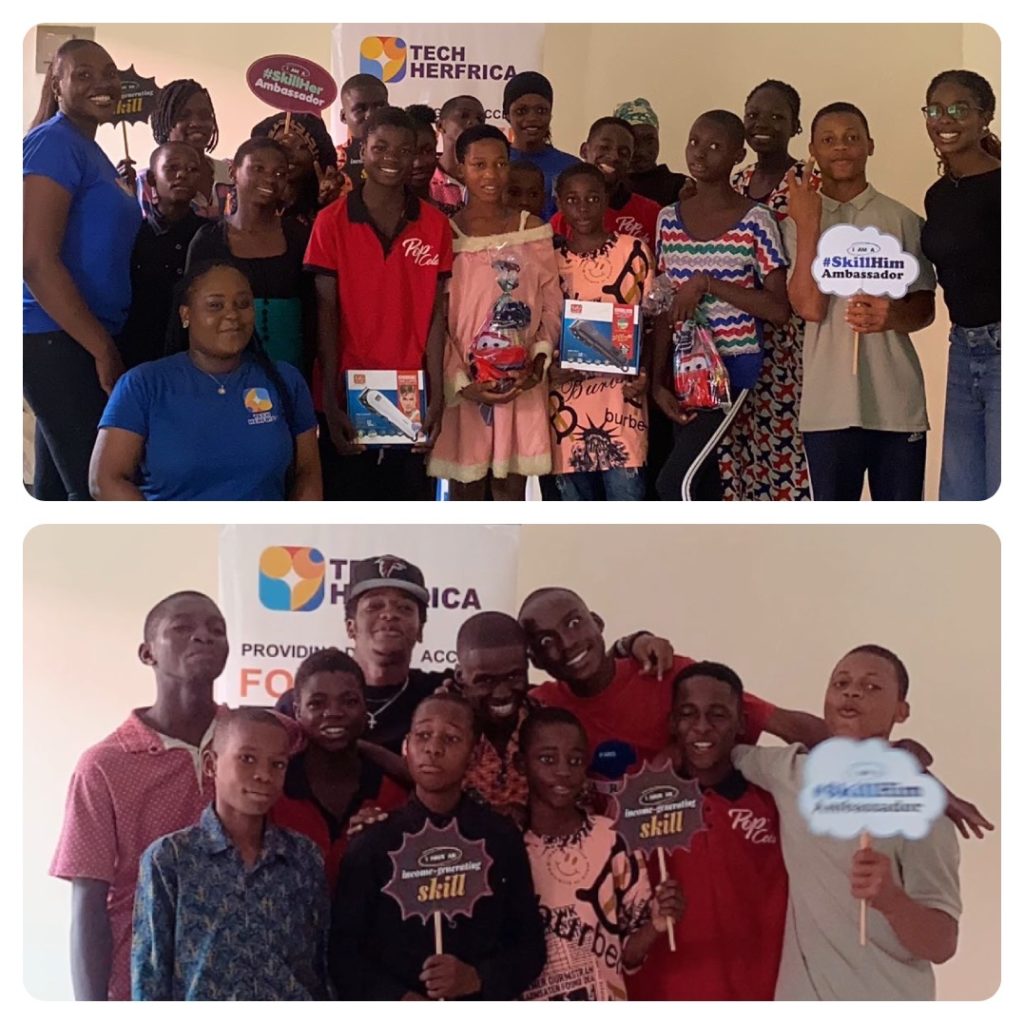
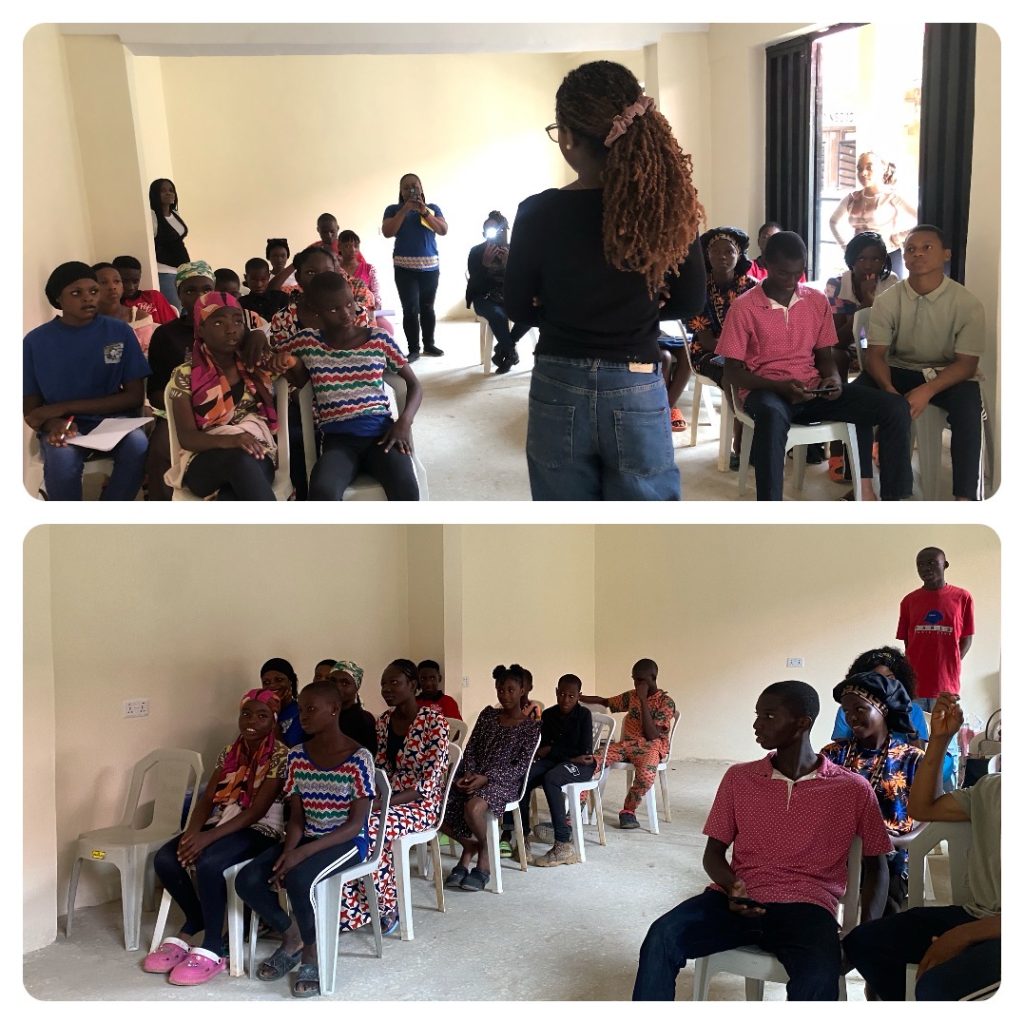
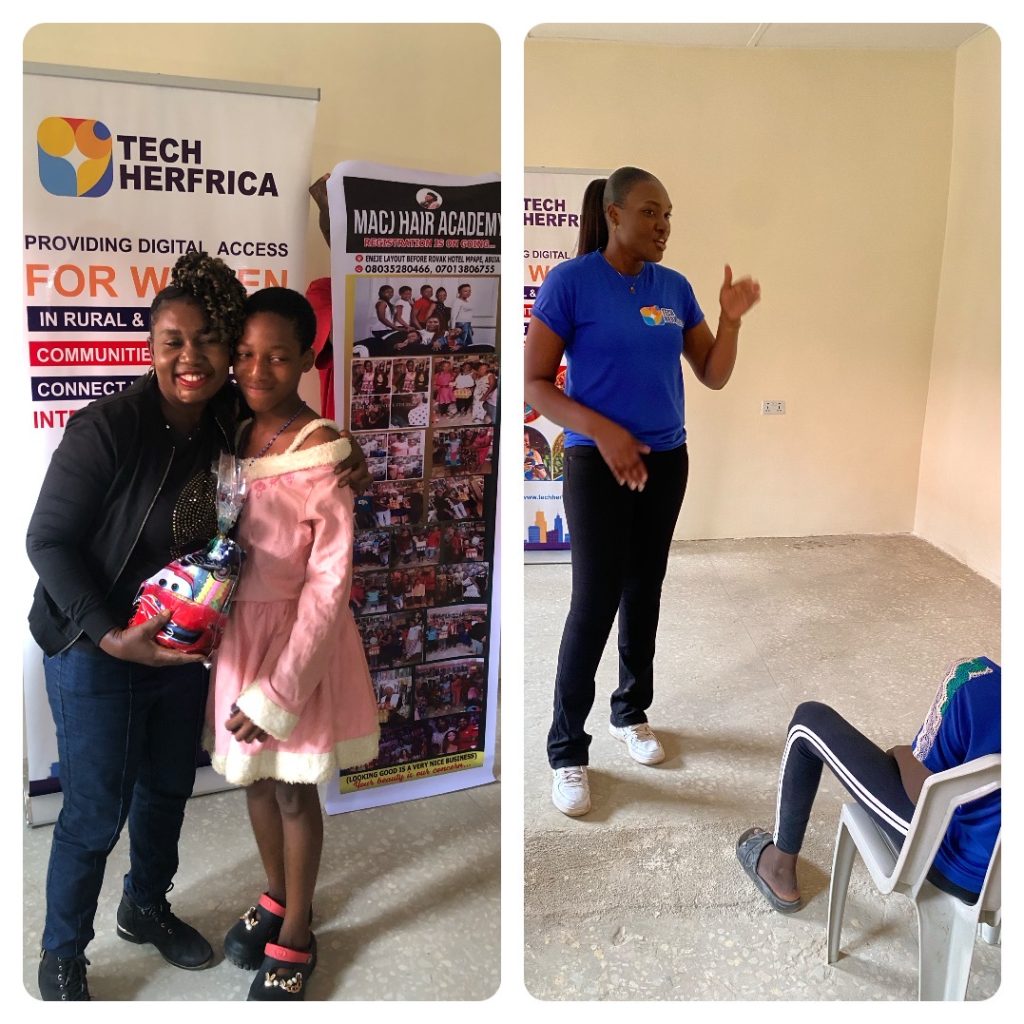
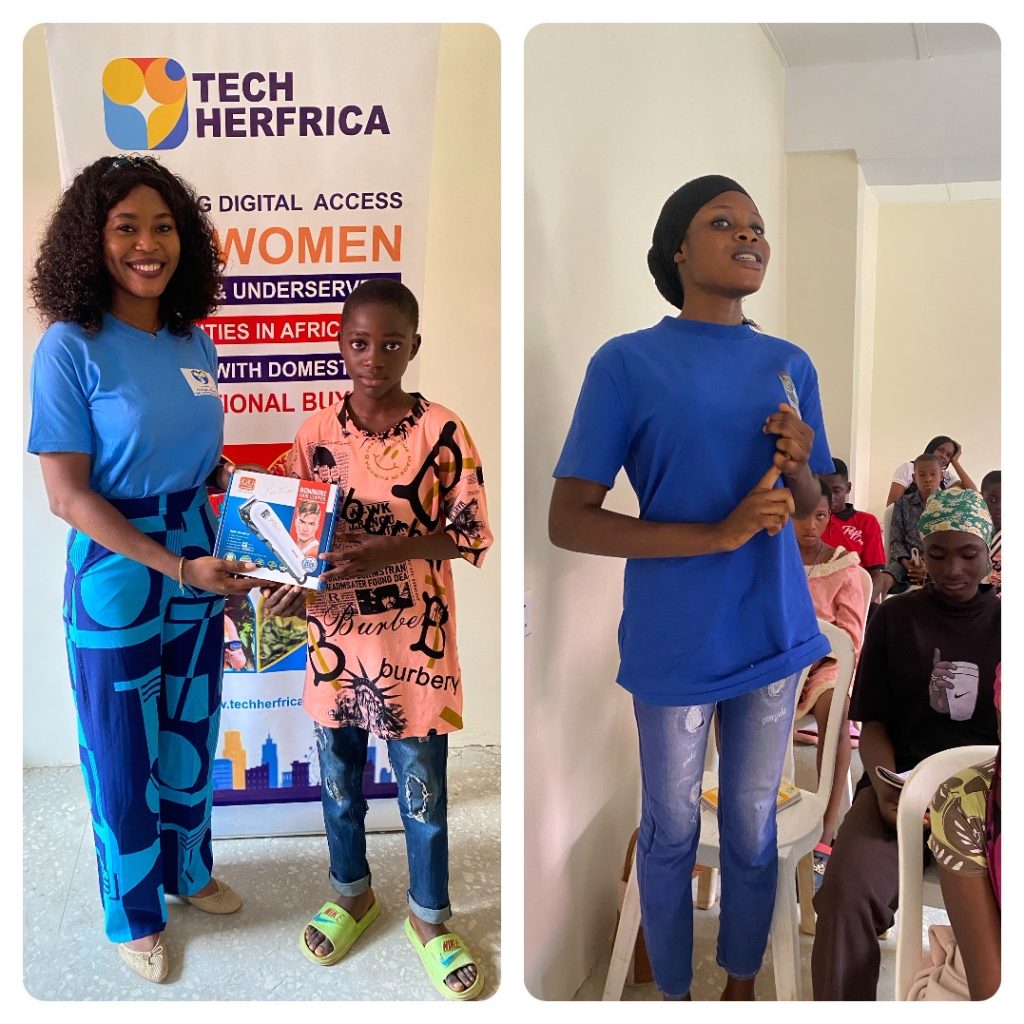
Training Session
The training session for the Summer Skill Up Program was designed to equip teenagers with essential skills in digital and financial literacy, entrepreneurship, and mental health awareness. Recognizing the importance of these skills in today’s world, the session aimed to empower the participants to succeed in their lives.
The training was practical and participatory, including:
- Digital Literacy and Entrepreneurship:
- Training on how to use smartphones and other digital devices effectively for learning and income generation.
- Demonstrations of popular digital platforms and tools for social commerce, showcasing how they can be used to start and manage businesses.
- Discussions on the role of technology in entrepreneurship and how digital skills can be leveraged for economic growth.
- Financial Literacy:
- Practical sessions on budgeting, saving, and managing personal finances.
- Interactive discussions on how to earn, save, and invest money effectively.
- Mental Health and Well-being:
- Workshops on mental health awareness and strategies for maintaining mental wellness.
- Activities designed to help teenagers identify stressors and develop coping mechanisms.
- Conversations about self-care practices and the importance of mental health in achieving overall success.
- Skill Development:
- Guidance on how to apply these skills in real-world scenarios to earn an income and support their communities.
Programme Outcomes
Increased Awareness:
- All 20 (100%) teenagers stated that the training had equipped them with knowledge on leveraging technology for income generation.
- Participants gained an understanding of how to use digital tools to improve their school research, with all 20 (100%) reporting increased confidence in using smartphones for academic purposes.
Increased Knowledge:
- The training significantly improved participants’ digital literacy and entrepreneurship skills. All teenagers reported that they now know how to become entrepreneurs.
- They gained practical knowledge on how to use their skills and technology to start and manage a business.
Improved Motivation:
- The training boosted the motivation of 18 (90%) out of the 20 (100%) teenagers, who felt confident enough to start a business with their skills, including those who had a skill and those who planned on learning one.
- Participants became more enthusiastic about utilizing their skills and digital tools to pursue entrepreneurial opportunities.
Increased Financial Literacy:
- All 20 (100%) teenagers reported that their understanding of how to save and manage their money effectively had increased, demonstrating a solid understanding of financial literacy principles.
Enhanced Mental Health Awareness:
- All 20 (100%) teenagers emphasized that they had learned the importance of mental well-being and were going to use the provided strategies to take care of their mental health as teenagers.
Increased Technological Use:
- All the teenagers who owned smartphones, made a commitment to using these devices for income-generating activities and personal development. This marked a significant increase in technological adoption for educational and entrepreneurial purposes.
Increased Access to Information:
- All the teenagers expressed a newfound appreciation for digital resources, indicating they would use their smartphones to access information related to their personal and professional growth.
Sustainability
The Summer Skill Up Program incorporates key sustainability measures to ensure long-term impact and continued success:
- Monitoring and Support:
- Four teenagers selected to learn barbing and hairdressing will be closely monitored throughout their training.
- Regular check-ins and evaluations will track their progress and provide necessary support.
- With the tools they were given, they will be paired to businesses where they can intern and earn.
- Evaluation and Skill Assessment:
- At the end of their learning period, the teenagers will be evaluated based on their baseline data.
- This assessment will measure their skill development and readiness to apply their knowledge in real-world scenarios.
- Community Skill Transfer:
- Each trained teenager is encouraged to select five additional teenagers from their community to teach their skills. By teaching others, the teenagers will reinforce their own learning and empower more young individuals to become self-sufficient.
- This skill-sharing initiative will create a ripple effect, spreading valuable skills and knowledge throughout the community. This fosters a culture of learning and skill-sharing, contributing to long-term community development.
Conclusion
The Summer Skill Up Program has been a transformative experience for the participating teenagers, providing them with essential skills and knowledge in digital literacy, entrepreneurship, financial management, and mental health awareness. Through practical and participatory training sessions, these young individuals have been empowered to leverage technology and their newfound skills to create opportunities for personal and professional growth.
The program’s outcomes highlight significant improvements in the participants’ awareness, knowledge, and motivation. All teenagers now feel confident in using smartphones safely for income generation and enhancing their academic research. They have gained a solid understanding of entrepreneurship, with the majority ready to start their own businesses. Furthermore, the program has equipped them with financial literacy skills and emphasized the importance of mental well-being.

